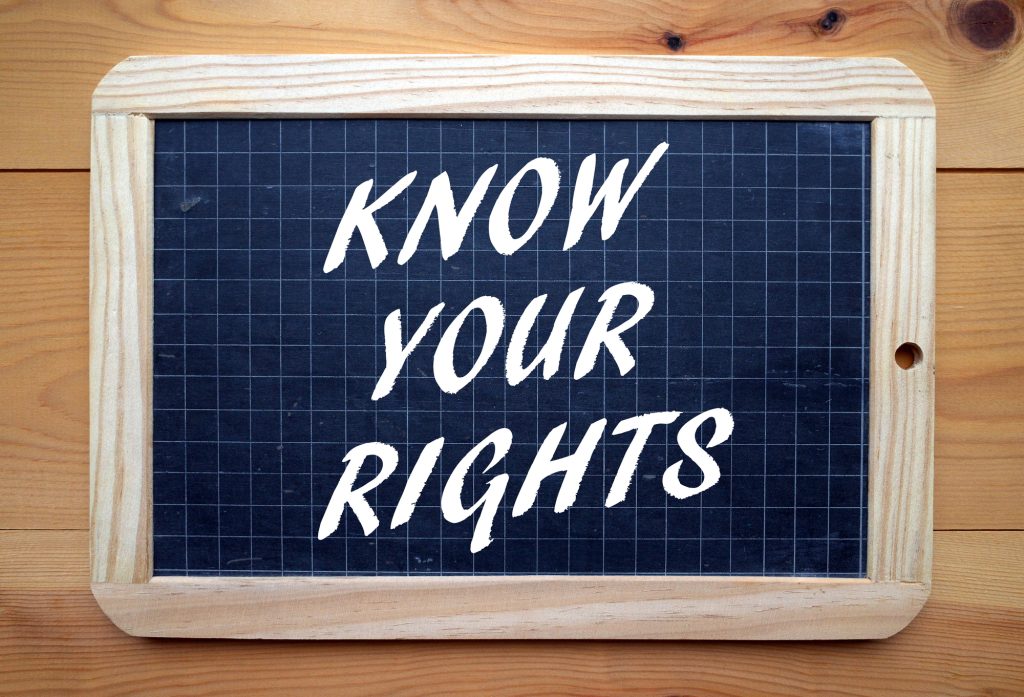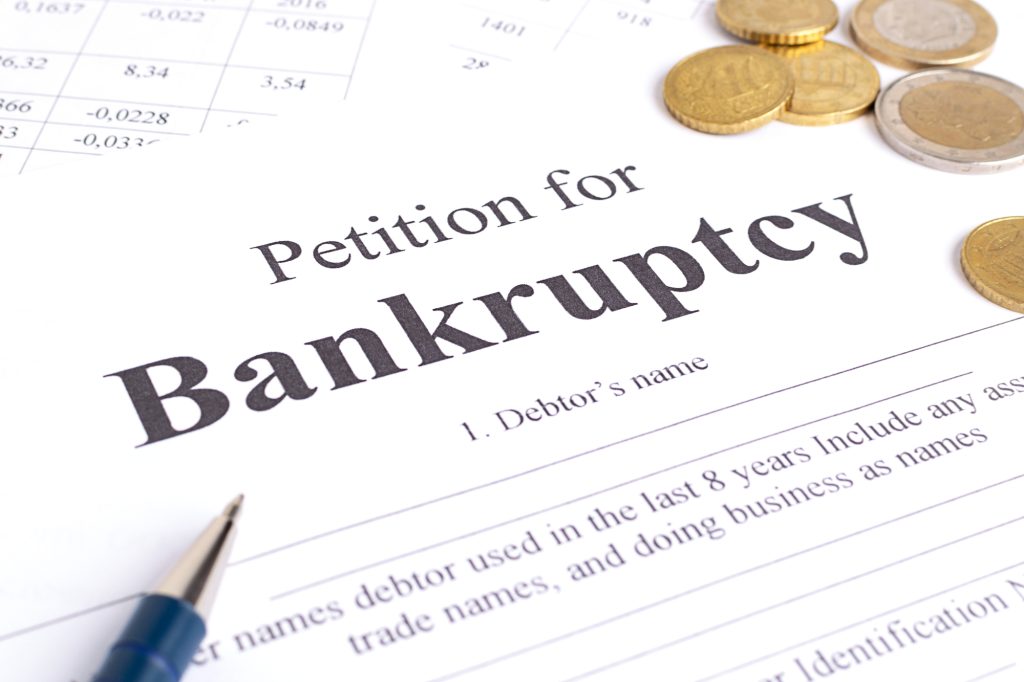The information provided in this article is for informational purposes only and should not be taken as legal advice. Readers should consult with a qualified attorney for advice specific to their situation before making any legal decisions or taking any actions.
Facing a debt lawsuit can be overwhelming, leaving you unsure of your next move. Every year, countless individuals are taken to court by debt collectors seeking to recover outstanding debts. If you are one of these people wondering how to get a debt lawsuit dismissed, then you’ve come to the right place!

Our step-by-step guide is here to provide clear strategies for potentially getting that daunting lawsuit dismissed and bringing you some peace of mind. Read on for the essential know-how that could tip the scales in your favor!
Key Takeaways
- Act quickly if a debt collector sues you, and always respond to the lawsuit within 20 to 30 days.
- Check the lawsuit for mistakes and use the statute of limitations as a defense if your debt is too old.
- Ask for proof that the debt collector has the right to sue you, like original contracts and paperwork.
- Consider hiring a lawyer to help with complicated legal rules or filing important papers in court.
- Settling outside of court can save time and money, but get any agreement in writing before paying.
Understanding the Debt Collection Lawsuit Process
Navigating the intricacies of a debt collection lawsuit demands comprehension and swift action; knowing what to expect when a debt collector sues you can greatly influence the outcome.
It’s crucial not only to understand each stage but also the importance of your response, as it could be decisive in protecting your financial future.
What happens when a debt collector sues you
A debt collector suing you means they are taking legal action to make you pay what you owe. They send a document called a summons, which tells you about the court case. This paper will give details like who is suing you (the plaintiff), how much money they say you owe, and when and where the court meeting is.
You must answer this summons by the deadline. If not, the court might decide in favor of the debt collector without hearing your side – this is called a default judgment. It lets them take money from things like your bank account or paycheck (garnish wages).
Remember, it’s important that any claim against you should be checked for errors because sometimes collectors don’t have all their facts right or even proof that they own your debt.
Review carefully if everything said in the lawsuit fits with what you know about your debts. The law says debt collectors need real proof before they can win in court – like showing they actually bought your debt and know exactly how much it is for.
If these pieces aren’t there or are wrong, this could help get their case thrown out of court. Plus, always look at how old your debt is; each state has rules on how long a collector has to sue (statute of limitations).
If too much time passed since you stopped paying, then using this as an argument can stop collectors from being able to force payment through courts.

The significance of responding to a lawsuit
If you get sued by a debt collector, it’s very important to reply. Not answering can lead to more trouble like losing the chance to fight and getting a default judgment against you.
This means the court may say you have to pay even if there were mistakes or you really don’t owe that much.
When the court gets your answer, it shows them that you want to tell your side of the story. The law says a debt collector must show they own the debt and how much it is. If they can’t do this, filing a motion to dismiss might stop the lawsuit.
Now let’s look at what steps you should take immediately if you find yourself sued over a debt.
Immediate Steps to Take if Sued by a Debt Collector
When a debt collector sues, swift action is key. It’s crucial to respond quickly and scrutinize the lawsuit for inconsistencies, setting the stage for a strong defense.
Respond to the lawsuit promptly
If a debt collector sues you, act fast and respond to the lawsuit. You only have a short time to do this, often 20 to 30 days. If you don’t answer in time, you might lose by default.
This means the court could decide against you without hearing your side. Use SoloSuit to create and file the right legal papers easily. They help lots of people handle their debt lawsuits.
Answer every point the lawsuit says about you. Be clear and tell your story honestly. Check what the debt collector claims and make sure it’s all correct. If something seems wrong or unclear, write that down when you respond with SoloSuit’s tools at hand to guide you through each step.
Review the lawsuit for any inaccuracies
Once you’ve sent your response to the lawsuit, it’s time to look over all the papers carefully. Check for mistakes in your name, the amount they say you owe, or any other details about your case.
Sometimes debt collectors don’t have their facts straight. They might mix up accounts or not have the right documents. If you find errors, these can be powerful tools in court.
Look at each point in the lawsuit and see if what they claim is true. You have rights under laws like the Fair Debt Collection Practices Act that protect you from wrong claims and harassment.
Find out if they are suing you for a debt that’s too old based on your state’s statute of limitations. If so, this could be a big help to stop them from being able to collect money from you.

Legal Strategies to Dismiss the Debt Lawsuit
Navigating the complexities of legal defenses can be your key to challenging a debt lawsuit and potentially having it dismissed. Learn actionable tactics such as questioning the collector’s authority and leveraging time-sensitive laws that could turn the tide in your favor.
Challenge the debt collector’s right to sue
Make sure the debt collector has the right to sue you. They need to show they actually own your debt. Sometimes, a company buys old debts for less money and tries to collect them. These debt buyers must prove they have the correct documents and your specific account details.
Ask for this proof if someone sues you for an old bill. If they can’t show evidence, like original contracts or detailed paperwork, you might get the case thrown out. This is called challenging their “standing” in legal words.
It means questioning whether they are allowed to bring you to court over the debt at all.
Use the statute of limitations as a defense
Every state has a time limit for when debt collectors can sue you. This is called the statute of limitations. If this time runs out, the collector may not be able to win in court. You should check how many years your state allows for the type of debt you have.
If it’s past that time, you can use this as a defense to stop the lawsuit.
If you tell the court that the statute of limitations has ended, this could dismiss your case. You will need proof like old statements or letters to show when the last payment was made.
Using SoloSuit or talking with a lawyer helps make sure you do this right and improve your chances of stopping the debt lawsuit.
File a Motion to Dismiss based on insufficient evidence
If the debt collector does not have enough evidence to prove you owe the money, you can ask the court to throw out the case. This is called filing a motion to dismiss. You should do this after you send your Answer to the Complaint.
In your motion, you explain why there’s not enough proof against you. For example, if they say you didn’t pay but you have bank records showing that you did, include those.
Make sure to give copies of your motion to everyone involved in the case. Then wait for them to respond. The judge will look at what both sides say before making a decision. If they agree with your argument and grant your request, it means no more lawsuit.

File a Motion to Compel Arbitration if applicable
You might be able to avoid court if your agreement with the debt collector includes an arbitration clause. This means you can ask the court to move the case out of the courtroom and into arbitration.
In this process, an arbitrator will listen to both sides and make a decision. To do this, you need to file a Motion to Compel Arbitration.
SoloSuit can help make this step easier for you. They have tools that let you draft and file important legal papers, like a motion to compel arbitration. Using SoloSuit’s resources puts their knowledge on your side as you handle responses from debt collectors at each part of dealing with them.
Negotiating with Creditors Outside of Court
Unlock the potential of peaceful resolution by learning effective strategies to negotiate with creditors and possibly settle debts without stepping foot in a courtroom—dive deeper into this empowering approach.
How to negotiate an out-of-court settlement
Talking to creditors can help you avoid court. Start by checking if they want to settle. You both can save time and money this way. Use clear words and be honest about what you can pay.
Ask them for their best deal, too.
Keep records of all talks with the creditor. Write down dates, times, and names of people you spoke with. Make sure any agreement is in writing before paying anything. This protects you later on.
Next, learn why settling before trial is a good idea.
The advantages of settling before trial
Negotiating a settlement means you might end the case faster and save money. Going to court can cost a lot of time and cash. But if you settle, you avoid those big costs. Plus, settling gives you control over the result.
You can agree on an amount that works for both sides without taking your chances with what a judge or jury decides.
Settling also keeps things quieter because court cases can be public. This way, your financial matters stay private. And it’s less stressful than going through a trial which can be tough on everyone involved.
People who settle tend to be happier because they get the problem solved and move on with their lives more quickly.

Protecting Your Rights Against Debt Collectors
Knowing your rights under the Fair Debt Collection Practices Act (FDCPA) is crucial in shielding yourself from overzealous debt collectors; learn how to assert these protections and maintain control over your financial situation by continuing with our guide.
Understanding your rights under the Fair Debt Collection Practices Act (FDCPA)
The Fair Debt Collection Practices Act (FDCPA) is a law that protects you from bad behavior by debt collectors. It says they can’t harass you or lie to you about your debt. They must be honest about who they are and what you owe.
If a debt collector breaks these rules, you can report them to the Consumer Financial Protection Bureau (CFPB). You also have the right to send a debt validation letter asking for proof of the debt they say you owe.
Knowing your rights helps you stand up against unfair treatment. Be sure not to ignore any letters or calls from collectors because this can lead to more issues. It’s smart to learn how to deal with these situations calmly and correctly.
With this knowledge, let’s explore actions to avoid when dealing with debt collectors.
Actions to avoid when dealing with debt collectors
Knowing your rights under the Fair Debt Collection Practices Act is vital. Now, let’s focus on what not to do when debt collectors contact you.
- Ignore their calls or letters. Responding shows you’re aware of the debt and are taking steps to address it.
- Give them access to your bank account or personal information without verifying they are legitimate. Protect your financial details carefully.
- Let a debt collector harass you. Report any abuse to the authorities right away.
- Make a payment without getting the agreement in writing first. Always get proof of any promises made by the collector.
- Accept their first settlement offer if you can’t afford it. Try to negotiate a better deal that fits your budget.
- Talk to them without recording the date, time, and details of your conversation. Keep good notes in case you need them later.
- Make decisions based on emotion instead of facts, like paying just to make them go away. Think carefully and seek advice if needed.
- Admit to old debts before checking if they’ve passed the statute of limitations for collection. This could restart the clock on how long they have to sue you.

The Role of Legal Representation in Debt Lawsuits
Navigating the complexities of a debt lawsuit can be daunting, but hiring an attorney who specializes in such cases can offer strategic advantages and peace of mind.
When to consider hiring an attorney
Think about getting a lawyer if you feel lost or scared about the lawsuit. A lawyer knows the rules of civil procedure and can help you find mistakes in how the debt collector is suing you, like if they waited too long (statute of limitations) or are suing in the wrong place (court venue).
They also know how to fight claims that aren’t clear or don’t give enough details for relief.
Let’s say the papers weren’t given to you right. An attorney can argue this point effectively. They bring skills to challenge any weak spots in the debt collector’s case. With their help, your chance of winning goes up.
How legal counsel can strengthen your case
Deciding to hire an attorney for your debt lawsuit can make a big difference. A lawyer knows the legal system inside out and can spot errors or weak points in the debt collector’s case.
They will use their knowledge of laws like the Fair Debt Collection Practices Act (FDCPA) to protect you. An experienced attorney will look at every detail, from paperwork mistakes to how much time has passed since you first got into debt.
A good lawyer will also talk for you in court, file all the hard paperwork, and find ways to get evidence that makes your case stronger. They might even keep your wages from getting taken by creditors.
If settling is your best choice, they’ll fight for a fair deal that helps you move on with life without heavy debts holding you back. Legal help puts someone who fights these battles every day on your side, which increases your chances of winning against debt collectors.
Preparing for the Possibility of Bankruptcy
Understanding when and how to consider bankruptcy as an option can be a crucial turning point in your legal battle against debt collection, offering a fresh start that might just tip the scales back in your favor—learn more about this potential path to financial freedom.
Assessing if bankruptcy is a viable option
Sometimes, paying off debt seems impossible. Bankruptcy could be a way out. Think about it if you can’t see any other choice to handle your debts. It might allow for a fresh start by making some or all of your debts go away.
You should know that filing for bankruptcy is serious and affects your credit score badly.
There are different kinds of bankruptcy, like Chapter 7 or Chapter 13. A credit counselor can help you understand which kind works best for you. Keep in mind, debt collectors may agree to take less money than what you owe them.
This could be a better path than bankruptcy because it can be easier on your credit history.
Now let’s look at how the impact of bankruptcy on debt lawsuits could change things.

The impact of bankruptcy on debt lawsuits
Once you’ve looked at bankruptcy as an option, it’s important to know how it changes debt lawsuits. Bankruptcy can stop these lawsuits right away. This is because the court orders a “stay,” which means debt collectors must wait.
They can’t take your money or property while this order is in place.
Filing for bankruptcy might also mean you don’t have to pay certain debts anymore. The court may say that you are no longer required to pay them back. If a debt collector has sued you, their case might get dismissed or put on hold because of your bankruptcy.
This can help if you’re negotiating with creditors too. You might be able to settle your debts under better terms during or after a bankruptcy case.
Talking with a lawyer is smart if you’re thinking about bankruptcy and dealing with a lawsuit over debt. They can guide how one affects the other in your financial life and help give you a new start without old debts holding you back.
Conclusion and Next Steps
In the fight against a debt lawsuit, knowing what to do can make all the difference. Make sure you act quickly, check for mistakes, and know your rights. If needed, talk to a lawyer or think about other choices like settlement or bankruptcy.
Every step counts when it comes to dealing with debt collectors and protecting your future.

Frequently Asked Questions
Q: How can I get a debt lawsuit dismissed?
A: You can get a debt lawsuit dismissed by filing a motion to dismiss the lawsuit, especially if you believe the lawsuit lacks merit.
Q: What should I do if I get sued for a debt by a credit card company?
A: If you get sued for a debt by a credit card company, it’s important to seek the help of an experienced debt attorney who can assist you in formulating a debt collection defense and potentially get the lawsuit dismissed.
Q: What are some options for debt relief in a lawsuit filed against me?
A: Some options for debt relief when facing a lawsuit include negotiating a debt settlement with the creditor or debt collector, or challenging the lawsuit in court to have it dismissed.
Q: What is the process for answering a lawsuit filed against me for debt?
A: The process of answering a lawsuit for debt involves filing a formal response with the court within the specified number of days to respond, typically outlining your defense and reasons why the lawsuit should be dismissed.
Q: When can a creditor or debt collector dismiss a debt lawsuit?
A: A creditor or debt collector may dismiss a debt lawsuit if they are unable to prove the amount of the debt or if they determine that pursuing the lawsuit is not financially viable.
Q: How can an attorney help in getting my debt lawsuit dismissed?
A: An experienced debt attorney can help in getting your debt lawsuit dismissed by strategizing a strong defense, negotiating with the creditor or debt collector, and representing you in court proceedings.
Q: What are some common strategies to dismiss a debt lawsuit?
A: Common strategies to dismiss a debt lawsuit include challenging the creditor’s ability to prove the debt, demonstrating that the lawsuit violates the statute of limitations, and highlighting any procedural errors in the lawsuit filing.
Q: Can I settle a debt and have the lawsuit dismissed at the same time?
A: Yes, it’s possible to negotiate a debt settlement with the creditor while concurrently pursuing a motion to dismiss the lawsuit, if the settlement includes terms for dismissing the case.
Q: Are there specific requirements for filing a motion to dismiss a debt lawsuit?
A: Yes, when filing a motion to dismiss a debt lawsuit, it’s important to adhere to the specific legal requirements and grounds for dismissal, which often include challenging the legal basis of the lawsuit and presenting evidence to support your arguments.
Q: What is the timeframe for responding to a debt lawsuit once I’ve been served?
A: Generally, once you’ve been served with a debt lawsuit, you have a limited number of days to respond, so it’s crucial to act promptly and begin formulating your defense or seeking legal representation.

